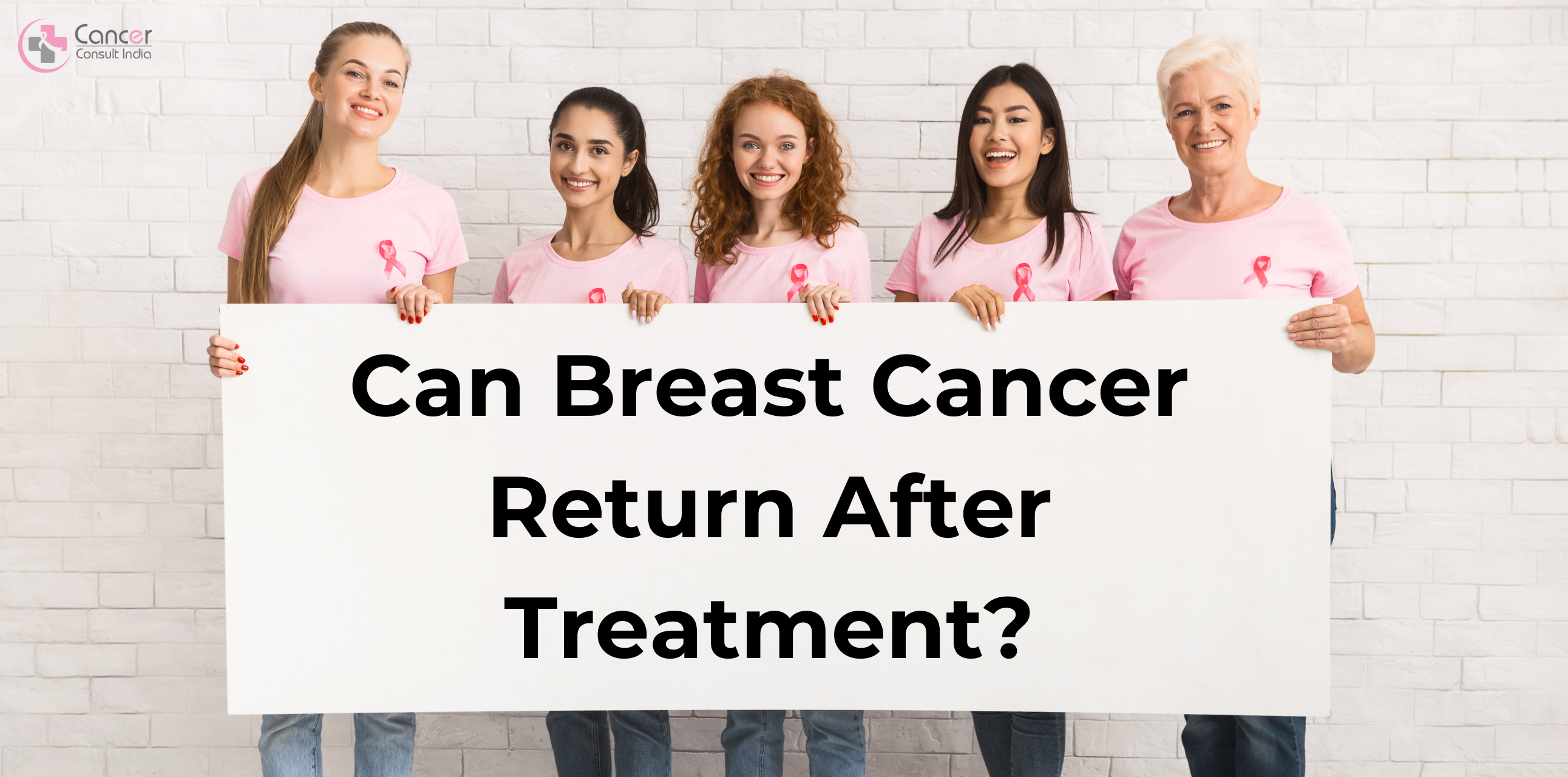Dr Manish Singhal - The best Cancer Specialist in Delhi
Can Breast Cancer Return After Treatment? What You Need to Know

Breast cancer is a formidable opponent that touches millions of lives around the world. The path through diagnosis, treatment, and recovery can be long and full of emotional ups and downs. For some, completing Breast Cancer Treatment In Delhi is a fresh start; a return to normalcy. But for many survivors, there’s one question that lingers: Can breast cancer come back after treatment?
Survivors and their families need to understand recurrence and what factors affect it. Let’s take a closer look at this complex subject in hopes of shedding some light on it.
Types of Breast Cancer Recurrence
Breast cancer can recur in different ways, which have different meanings for patients and families as well as differing treatments:
Local Recurrence: It occurs when the original tumor returns either in the breast or within its scar following initial therapy (treatment). A new lump that appears in your breast, changes to the skin overlying where you were previously treated, or thickening near the surgical site may all be signs of local recurrences.
Regional Recurrence: It occurs when tumors return to lymph nodes close by - such as those under your arm or above your collarbone - after they were removed from nearby areas during surgery (such as mastectomy). In these cases, swelling might occur along with tenderness but not necessarily pain.
Distant Recurrence (Metastatic): It means that cells have spread beyond their original location into distant organs like bones lungs brain liver etc., which are considered “metastases.” Symptoms can vary greatly depending on where metastases are located. For example, bone pain neurological deficits, persistent cough, and chest discomfort could indicate lung involvement while headaches, seizures, and focal neurologic signs might suggest CNS disease.
Factors Influencing Recurrence
Several factors influence how likely it is that breast cancer will return:
Stage at Diagnosis: Stage I cancers diagnosed early carry lower risks than stages III & IV detected later due to the differences in aggressiveness between them.
Hormone Receptor Status: Hormone receptor-positive (HR+) tumors are more likely to respond well to hormone therapy, resulting in better outcomes with lower chances of coming back compared to HR-negative ones.
HER2 Status: Although HER2-positive cancers tend to be more aggressive than other types initially diagnosed. Targeted therapies have significantly improved prognosis among these patients thereby decreasing risk post-treatment completion too!
Lymph Node Involvement: The presence of cancer in lymph nodes increases the chances of it coming back. If more lymph nodes are involved, then the risk is even greater.
Tumor Size and Grade: Bigger tumors and high-grade malignant ones (which appear abnormal under a microscope) have higher odds for reoccurrence.
Type of Treatment Given: Surgical methods used such as chemotherapy, radiotherapy or hormone therapy can significantly influence how likely you are to get sick again after being cured once.
Risk of Recurrence
The fear of recurrence is real, but there are ways to lessen the likelihood:
Adherence to Treatment Plans: Complete all treatments prescribed by an oncologist in Delhi for cancer such as hormone therapy for hormone receptor-positive cancers.
Regular Follow-ups: Seeing your oncologist in Noida regularly allows for early detection of recurring signs when they are most treatable.
Healthy Lifestyle Choices: Eating healthy foods, exercising often, and limiting alcohol consumption can help maintain a healthy weight which reduces the chances of getting sick again.
Medications: Tamoxifen or aromatase inhibitors may significantly lower the risk of reoccurrence in breast cancer patients who have hormone receptor-positive tumors.
Mind-Body Practices: Yoga, meditation, mindfulness, and other stress-reducing techniques can promote overall wellness that might lead to better health outcomes.
Psychological Impact and Support
Breast cancer survivors experience significant anxiety due to possible recurrences. Thus emotional support is just as important as physical treatment. Joining support groups or talking with counselors about fears will ease worries because these professionals understand what you’re going through since they’ve helped others too!
Living with Uncertainty
It’s hard not knowing if something bad will happen again but try focusing on good things instead! After all many women live long happy lives after finishing their breast cancer treatments. Research keeps getting better which gives us hope that one day no one else will ever have another chance.
Conclusion
Understanding risks associated with a recurrence should be combined with proactive monitoring strategies aimed at reducing them following the completion of therapy. However, this does not imply an endpoint for the treatment itself according to Dr Manish Singhal.
This best Breast Cancer doctor in Noida believes it is essential also to include emotional psycho-social lifestyle dimensions in the post-care plan. Here all providers work together toward helping the survivor while minimizing risks related, specifically to different types of cancers.
Collaboration between doctors, nurses, dietitians, psychologists, and social workers for complete Breast Cancer Treatment In Noida is essential until we reach the next level concerning a holistic approach thereby improving the quality of life every day!




